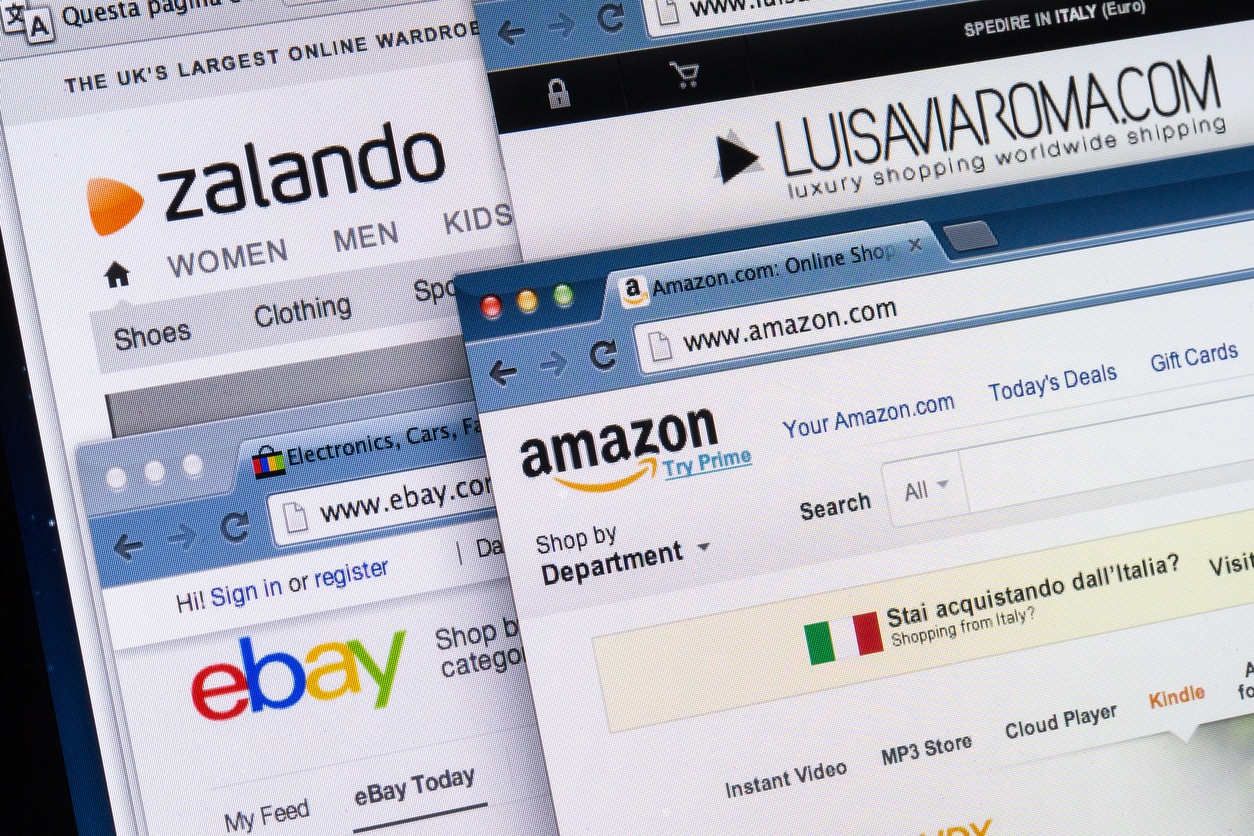Should You Separate Brands into Different Companies?
When you start operating multiple ecommerce brands you naturally start to wonder, “Should I separate each brand into its own company?”
In this post I'll cover whether you should be separating your brands into different companies, how you can do it, and if you do do it, what you need to watch out for.
Topics Covered
The Ultimate Question to Decide If You Should Separate Brands into Different Companies
There's one single question which will help you to determine if you should be separating your brands into multiple companies: do you plan to sell one individual brand in the future?
If you plan to operate multiple brands BUT sell one of the brands separately from the others than you should separate the brands into their own companies. If you plan to operate multiple brands and sell them all together, then it doesn't really matter if everything is under one company or not. It's important to get the brand architecture right from the beginning.

Separating a brand into its own company for sale has nothing to do with the actual business structure of your company. The person who buys your company will almost certainly NOT want your company. They will do what is called an asset sale – they're going to buy all the sets in the company and leave the actual company to yourself. When the assets that you are selling (i.e. the brand) are in a separate company it results in MUCH easier due diligence during sale time which increases the chances you complete a successful sale. There's also other reasons to separate your brands into their own companies which I'll address shortly as well.
Related Listening: E274: How Due Diligence Helps You Sell Your Ecommerce Business
Personal Experience from Two Brand Sales
EcomCrew partner Mike Jackness and I have both sold significant brands in the last several years.
When I sold my brands, I actually ended up having to sell both brands under the parent company Anchoring.com and Komo Covers. My desire initially was to sell each brand separately but the work involved was too difficult – specifically because each brand was cross-sold on each website, eBay accounts were shared, Google Ad accounts were shared, and so on. While separating the brands would have been possible (anything is possible) it likely would have being a big deterrent to any buyer.
When Mike sold ColorIt.com he was faced with a similar proposition as me: he had multiple brands under one company and he wished to sell only one, ColorIt.com. He actually went through the entire process of separating ColorIt.com into its own separate LLC and he describes separating the brand as easily the most miserable part of the entire process of selling the brand.
Here's why having your brand that is for sale in a separate company makes due diligence so much easier.
Separate Companies Means More Reliable Financials and a Smoother Transition
When you run multiple brands in one company, splitting out revenue and, more specifically, expenses, becomes very difficult.
For example, what percentage of your FBA storage fees should be accounted for Brand A and what percentage for Brand B? What percentage of your Klaviyo subscription should be charged for Brand A and Brand B? And the list of questions like these go on and on. Things get way more complicated when you started bringing employees into the mix and start trying to divide what work they do for each brand. The buyer has to trust your division of assets or (worse) try to figure it out on their own. It's not necessarily a deal breaker, but it makes due diligence that much harder.
When you separate your companies, it also means that, ideally, you have created all separate accounts for everything such as Amazon accounts, email accounts, websites, and SaaS services.
At this point, you may be saying “How about if I just open separate accounts for everything under the same company?”. I'll address this in the sidebar below.
Other Advantages to Separate Companies
There are multiple other advantages to running separate companies aside from strictly making your brand easier to sell:
- Separate companies mitigates your risk. If you have one brand selling tasers and another selling coffee tables, you don't want one brand potentially being bankrupted by a lawsuit for the other brand. Multiple brands is a way is a way to mitigate risk.
- Separate companies can affect your sales tax liabilities. Sales tax is a hot topic. Many states have economic thresholds for triggering economic nexus and by having separate companies with lower individual revenue you may avoid triggering economic nexus.
There other other benefits as well but arguably the most important reason to separate brands is for the sake of selling your company.
Separate Accounts Matter More than Separate Companies
As I mentioned before, when you sell a company it will almost certainly be an asset sale and, for all intents and purposes, your business structure doesn't really matter.
The issue is with co-mingling accounts. Separating different brands from various online channels, services, and SaaS products is more difficult than trying to separate a siamese twins with a pair of rusty scissors. So unless you create separate accounts from the beginning, you're in for a world of pain.
The biggest challenges in separation are going to be (listed in order of difficulty):
- Amazon accounts
- eBay, Etsy, Walmart and other third-party channels
- Advertising accounts (Google Ads, Facebook ads, etc)
- 3PLs
- Stripe/PayPal accounts
- Email Service Providers (i.e. Klaviyo)
- Email (i.e. Google Apps)
- Websites
Generally, a co-mingled Amazon account is the biggest issue. First, it just makes revenue and expense reporting tricky. Second, your buyer is almost certainly going to want the Amazon account that has been being used historically. That means you will need to setup a second Amazon account no matter what. Even if you get approval for a second Amazon account, Amazon normally gives “control” of the page to whichever Amazon account first created the product.
Other channel accounts like eBay and Walmart also become problematic again for the fact that the buyer is going to want the original accounts with selling history, not a new secondary account that has just been created.

Ad platforms like Facebook and Google are also problematic. Once again, your buyer is going to want these which will mean you'll need to set up separate accounts and have Facebook and Google “re-learn” your account. This is less problematic than Amazon, but still a pain.
If you can be disciplined and create separate accounts for EVERYTHING from the beginning then none of these things are really problematic. Your buyer will still prefer if you are operating one brand to one company but as long as you have everything cleanly divided then you're unlikely to lose a motivated buyer.
How to Operate Multiple Brands in One Company (Even if You Plan to Sell One of the Brands)
If you never plan to sell just one of your brands, it's almost certainly best just to operate everything under as few of accounts as possible and within one company. It's going to be WAY simpler and far cheaper.
However, if you do plan to sell one of your brands and do not want to create a new company then follow this advice:
- Create separate Amazon accounts IMMEDIATELY. Read our post on creating multiple Amazon accounts here. You do not need a separate company to operate multiple Amazon accounts.
- Use Quickbooks/Xero “Class” feature to divide expenses and revenue. Most major accounting software offer something in the way of “classes” that allow you to divide expenses into classes, so essentially you'll have one class for each brand all within the same company file.
- One employee for one brand. If you have employees, including VAs, try as hard as possible to keep them working on one brand only. Trying to divide human beings is never a good idea, especially when you sell your company.
- Use a non-brand specific email. Use an email address that is totally separate from any of your brands (i.e. a generic Gmail address). You're going to lose access to your email for any sold domains – make sure you don't need any email addresses associated for that.
Related Reading: How to Find and Train the Best Filipino Virtual Assistants
How to Separate Multiple Brands into Multiple Companies (and the Consequences of It)
I won't discuss how to actually create different companies as there's far too many countries and tax havens to address them all.

Once again though, the key to creating separate companies is creating separate accounts for everything. For most things, having separate companies is not a requirement for having separate accounts (i.e. Amazon, Klaviyo, etc). For other things, like eBay, having separate companies is a requirement.
When you start separating companies though, there are going to be some advantages and disadvantages to it:
- Creating separate companies for an existing brand can result in a tax hit. If you're transferring assets to a new company, you're essentially selling these assets to another company. You may be liable for some tax as a result (that may or may not be recoverable). Check with your accountant
- Creating Separate companies will result in higher accounting fees. You're going to be paying to file two tax returns (and potentially two sets of bookkeeping). Many accountants will offer a discount on multiple companies.
- There'll be a lot of other things you pay twice for. There's a lot of company specific expenses you're going to incur. Business licenses. Insurance. Customs bonds. Banking fees. It'll add up.
Aside from the monetary costs of operating multiple companies, it is a significant pain in the butt. You're going to be logging in and out of accounts all day long. What will likely happen is that things will get neglected and the brand will become less efficient, especially from profit standpoint.
Conclusion
Being able to tell people that you have multiple companies is a nice entrepreneur bragging right. In reality though, it's a significant pain and an evil you should probably try to avoid if all possible.
If you operate multiple brands, how do you do it? Do you have multiple brands in one company or multiple companies? Let me know in the comments section below.



